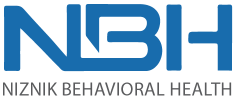National Teen Driver Safety Week: Oct 20 – 26

National Teen Driver Safety Week kicks off on October 20 to 26, 2019. This week is dedicated to raising awareness and seeking solutions to prevent teen injuries and deaths on the road. Millions of teens, parents, schools, law enforcement, advocates, and policymakers from across the country gather to confront the leading cause of death for teens in the U.S.
A teen sees a driver’s license as a step toward freedom, but a parent might not be sure the teen is ready to take on the roads. It’s a fact, teens aren’t ready to have the same level of driving responsibility as adults. Teen drivers have a higher rate of fatal crashes, mainly because of their lack of skills and experience. They speed, they make mistakes, and they get distracted easily – especially if their friends are in the car.
What Can You Do?
- Laws and restrictions can vary from state to state. Familiarizing yourself with the restrictions placed on a teen’s license can better assist you in enforcing those laws.
- Talk to the teens in your life about the dangers of drug and alcohol use. It is illegal and deadly to drink and drive.
- Be a good role model. Remember that children look to adults to be safe drivers, so practice safe driving. If you have a teen, set aside time to take her or him on practice driving sessions.
- Don’t rely solely on a driver’s education class to teach your teen to drive.
Distracted Driving
Distracted driving can extend beyond texting and talking on the cell phone. Many teens may try to use their driving time to eat or drink coffee, to apply makeup, or to change the radio station. Many teens are distracted when adding passengers or by display screens, navigation issues or by other drivers on the road. Any distraction is a dangerous distraction. Taking eyes off the road even for a few seconds could cost a life.
Driving with Alcohol or Drugs
Drunk-driving laws are always strictly enforced, and many states have zero-tolerance laws, meaning that there can be no trace of alcohol or illegal drugs in your system at any time. Let your teen know that law enforcement officers will be able to test for these substances. Teenagers face serious and long-term consequences of driving under the influence of drugs or alcohol. Those include a possible trip to jail, the loss of his or her driver’s license, and dozens of other expenses including attorney fees, court costs, fines, and insurance hikes. Your teen will also stand to lose college acceptance and scholarships.
What Can You Do?
- Never provide alcohol to teens. Do your part to prevent teens from having access to alcohol. Unfortunately, some parents think it’s OK to provide alcohol for teens. Don’t do it—it’s illegal. Parents who supply alcohol to any teen face jail time, loss of a driver’s license, and serious fines.
- Tell your teen that driving while impaired by drugs is illegal, too. The use of drugs can affect their ability to drive a vehicle safely. This includes illegal drugs, many drugs prescribed by a doctor for them or for someone else and some over-the-counter drugs.
- Remind your teen that it is never safe to ride in a car with someone who has been drinking alcohol or using drugs. If there is even a suspicion of alcohol or drug use, your teen should decline the ride immediately.
Get the conversation started about safe driving this National Teen Driver Safety Week in your community, school, or workplace. Get involved by sharing safety messages with others during National Teen Driver Safety Week — October 20 to 26, 2019.
About Niznik Behavioral Health
Niznik Behavioral Health is a national provider of drug and alcohol addiction treatment for adolescents and adults with Joint Commission accredited facilities specializing in a full continuum of care including safe and comfortable medical detox programs, residential treatment, partial hospitalization programs (PHP), intensive outpatient programs (IOP) and outpatient (OP) services, as well as assistance with aftercare through our Alumni programs.

